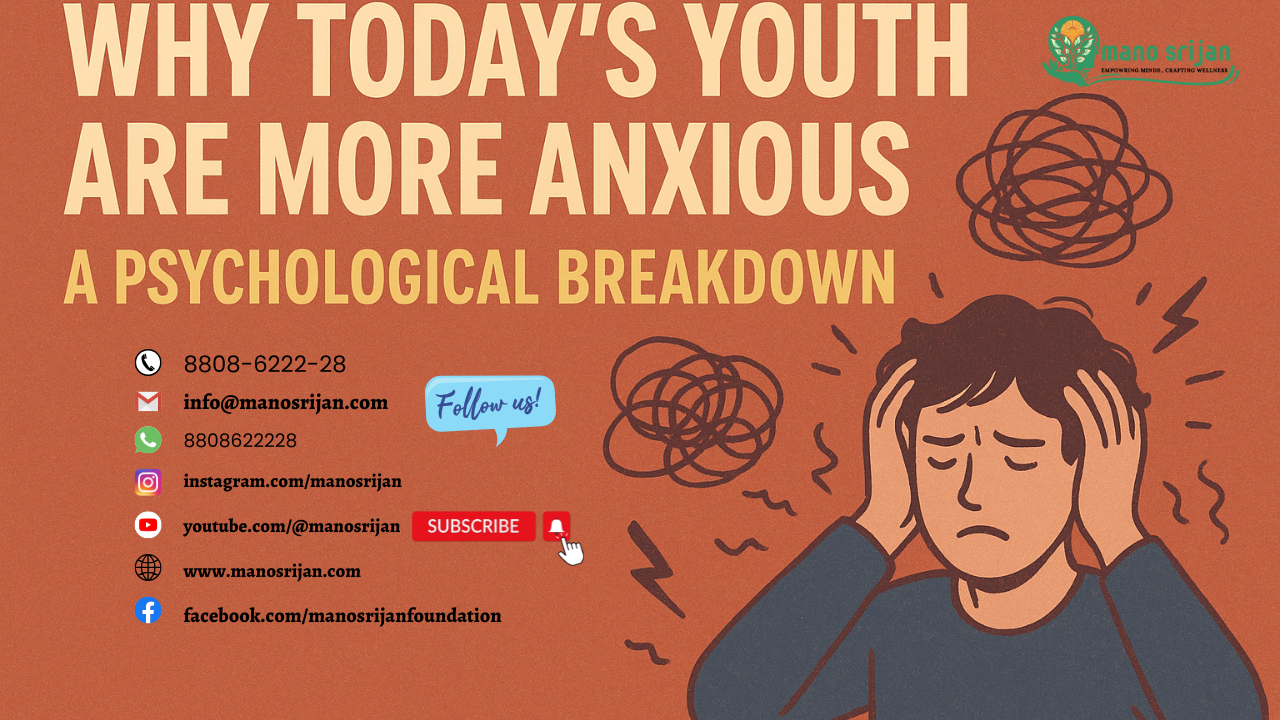
- 26 Dec 2024
- Psy. Ashish Pandey
Effective Strategies for Exam Stress and Pre-Exam Anxiety
Exams can be a significant source of stress and anxiety for students of all ages. The pressure to perform well and the fear of failure often result in sleepless nights and heightened emotions. However, with the right strategies, you can manage exam stress effectively and approach your exams with confidence. Here are some tried-and-true techniques to help you navigate this challenging time:
1.
Develop a Structured Study Plan
One of the leading causes of exam
anxiety is the feeling of being unprepared. Combat this by creating a detailed
study schedule that breaks your syllabus into manageable sections. Allocate
specific time slots to each topic and stick to your plan. Prioritize difficult
subjects or topics you find challenging while leaving ample time for revision.
2.
Practice Mindfulness and Relaxation Techniques
Incorporating mindfulness practices
such as meditation, deep breathing, or yoga can help reduce stress levels. These
techniques encourage a calm and focused mindset, which is essential during exam
preparation. Even dedicating 10-15 minutes a day to mindfulness can
significantly improve your mental well-being.
3.
Maintain a Balanced Diet and Stay Hydrated
Your brain needs proper nutrition to
function at its best. Avoid high-sugar or high-caffeine snacks, as they can
cause energy crashes and jitteriness. Instead, opt for a balanced diet rich in
fruits, vegetables, whole grains, and proteins. Drink plenty of water to stay hydrated,
as dehydration can impair cognitive function.
4.
Get Adequate Sleep
Pulling all-nighters might seem like
a good idea, but lack of sleep can negatively affect memory, concentration, and
overall performance. Aim for 7-8 hours of quality sleep each night, especially
in the days leading up to your exam. Establish a regular bedtime routine to
ensure your body and mind are well-rested.
5.
Use Positive Affirmations
Negative self-talk can exacerbate
anxiety. Replace thoughts like "I can't do this" with positive
affirmations such as "I am prepared and capable." Remind yourself of
past successes and focus on your strengths. Building a positive mindset can
significantly boost your confidence.
6.
Practice Past Papers and Mock Exams
Familiarizing yourself with the exam
format and practicing under timed conditions can reduce uncertainty and build
confidence. Review past papers, identify patterns in questions, and simulate
exam scenarios to enhance your preparedness.
7.
Take Regular Breaks
Continuous studying can lead to
burnout. Follow the Pomodoro technique—study for 25 minutes, then take a
5-minute break. Use these breaks to stretch, hydrate, or engage in a relaxing
activity. Regular breaks improve focus and prevent mental exhaustion.
8.
Seek Support from Others
Don’t hesitate to reach out to
friends, family, or teachers if you’re feeling overwhelmed. Talking about your
worries can alleviate stress, and others may offer helpful advice or
perspective. Study groups can also be a great way to share knowledge and stay
motivated.
9.
Visualize Success
Visualization is a powerful tool for
reducing anxiety. Spend a few minutes each day imagining yourself in the exam
hall, confidently answering questions and performing well. This mental
rehearsal can help you feel more prepared and less anxious.
10.
Know When to Seek Professional Help
If exam stress becomes unmanageable and starts affecting your daily life, consider seeking help from a counselor or mental health professional. They can provide coping strategies and support tailored to your needs.
Exam stress and anxiety are common,
but they don’t have to control your life. By implementing these strategies, you
can take charge of your emotions and perform to the best of your ability.
Remember, exams are just one part of your journey—your mental health and
well-being are equally important. Approach your exams with a calm mind, and
trust in the effort you’ve put into your preparation. You’ve got this!






